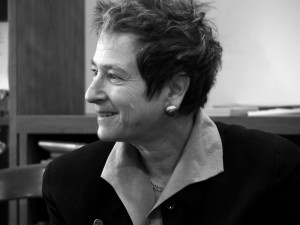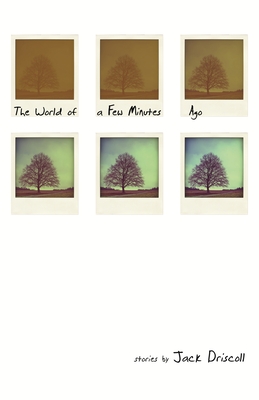Editor’s note: As part of our focus on teaching this month, we’re delighted to present this guest post by Robin Becker.
“To stimulate, to argue, to celebrate, to explain, to describe, to amuse, to popularize new ideas, to keep the conversation going—these are part of the job and a large part of the ideal to which any good book reviewer will always aspire.”
–John Gross, New York Times Book Review Editor; editor of the special 100-year anniversary issue of the NY Times Book Review
I designed the graduate seminar The Writer as Critic: Reviewing Contemporary Poetry, Fiction & Non-Fiction (English 570, in Penn State lingo) as a way to bring my grad students into the national conversation about literature. I wanted them to learn the skills needed to navigate the world of literary publishing, a world they hope to enter. Today, that world includes editors, publicists, marketing managers, publishers, interns, Web designers, and other techies as well as writers. Where to start? My own experience had led me to book reviewing. Years ago, just as my first book entered production, I asked a more experienced poet how to get my book reviewed. She replied, “Review other people’s work. That way, you participate in the conversation.”
Students in our MFA Program at Penn State arrive full of energy and enthusiasm for their genre—poetry, fiction, and non-fiction—but have yet to discover their own gifts for discerning and practical criticism. Entering the book reviewing seminar, they cannot imagine the confidence with which they will complete the semester. They gain this confidence by generating a number of productive correspondences with editors and publishers, which lead to the publication of five (sometimes more!) book reviews. Along the way they request books from publicists, query editors, write and revise reviews in seminar, and celebrate one another’s successes. Many students build relationships with editors and presses that continue long after the MFA. Many go on to “dual” lives as creative writers and reviewers.
In preparation for each semester, I forge partnerships with independent, small press, and university publishers, as well as magazine editors. We familiarize ourselves with texts and series that don’t receive attention in the mainstream press and which have, increasingly, taken over the publishing of literary poetry, fiction, and non-fiction. Our partnership with editors at literary magazines means that an editor agrees to read and consider for publication one review by each student in the class. With a decade of experience (and superb student publications) on which to draw, I find most editors receptive to partnering with my seminar class.
We begin the semester by reviewing two books—one poetry, one prose—in 200-word and 500-word versions. (My partnerships enable me to distribute, on the first day of class, copies of these texts.) While students revise and polish these 500-word reviews for publication, they query journal editors on possible venues for publication. Simultaneously, students write to publicists and editors at publishing houses to acquire books for the upcoming 750-word review and the two 1,500-word reviews.
Students keep detailed logs of correspondence with editors and publishers. At the close of the semester, they hand in final portfolios with logs for all five major projects (two 500-word reviews, one 750-word review, and two 1,500-word reviews) as well as copies of finished reviews.
Below is an article on the class by a former student, Amee LaBrie, who is now the director of marketing & communications at University of Pennsylvania, which conveys the essence of the class from a grad student’s perspective. The article appeared on the website Penn State Live.
WHERE BOOK REVIEWERS GET THEIR START
“This will be the most demanding and rewarding course you will take in graduate school.” Those are among the first words Robin Becker utters when she enters English 570, a course in book reviewing for graduate students in English and creative writing. Her prediction, as it turns out, appears true. Almost every student in every book reviewing class she teaches places at least one (if not several) book reviews in serious literary journals, including places like The Harvard Review, Prairie Schooner, and Mid-American Review.
Becker, professor of English and women’s studies, has published numerous poetry collections including Venetian Blue, The Horse Fair, and All-American Girl, and she has a reputation among graduate students as a challenging mentor. Laura White, a third year fiction student, joined the class forewarned about the work it requires. “A student from a previous class told me to expect the class to be a full time job,” she said. “That’s an exaggeration, of course, but not an extreme one.”
Becker structures her course with several key goals. First, students learn the basic skills for beginning the book reviewing process. This includes contacting publishing houses for review copies of their newest publications, learning what literary journals are most likely to be interested in a particular book, and querying editors to read reviews. Along with these challenges, students must write pieces of varying lengths (anywhere from the 200 word reviews seen in Publisher’s Weekly to feature length reviews like those in The Nation). In this way, when they leave the class, students take with them the ability to market their reviews to a wide range of review publishers. However, reviews do not get sent to editors until they receive the approval of the editorial board comprised of fellow class members.
Graduate student Allison Schuette explains this part of the class as being where “very intensive revision happened. Everyone signs off on the longer reviews before we send them to Robin, who then signs off on the reviews before they go to an editor. In other words, the reviews are pretty perfect by the time they make it into the mail.”
Finally, the class inspires conversation and interaction among students about writing in general, writing schedules, angles to take in a particular review, questions to answer, and the literal exchange of books and information about what journals might be interested in one review or another.
Another of Becker’s students, Robin Mozer, delineates the validity of her experience in the class. “This has been by far my most productive semester ever. The schedule has forced me to become a more organized, more deliberate writer and learn how to manage my time for looming deadlines. I’ve also gotten my first publication ever in this course. It’s done wonders for my confidence as a writer.”
Though the class fills almost immediately, Becker can only teach it every other year. She demands as much of herself as she does of her students, meeting with them several times over the semester, offering detailed suggestions and revisions, and continually asking them about their progress with editors.
“It’s been very rewarding for me as a teacher,” Becker says. “I think people took very seriously my request that they make the effort to have at least three pieces accepted for reading. We’ve got fifteen weeks to do this great thing. The rigor pays off and you can see it in the numbers of reviews that students are getting placed, you can see it in the confidence with which they go about their lives as writers, and you can see it in the quality of reviews that we’re getting out of the revisions.”
Laura White sums up her perspective of English 570. “Taking Robin’s class is like a writing boot camp and I can say now, at the semester’s end, that we’re all in excellent condition. Our writing has obviously improved. But it’s not just about the writing. I’ve come to consider book reviewing as an important, on-going aspect of an engaged writer’s life.”
Robin Becker’s collections of poems include Domain of Perfect Affection, The Horse Fair, All-American Girl, and Giacometti’s Dog, all in the Pitt Poetry Series. Liberal Arts Research Professor of English at Penn State, Becker has received fellowships from the Bunting Institute at Harvard, the Massachusetts Cultural Council, and the National Endowment for the Arts. Her column on poetry, “Field Notes,” is a regular feature in The Women’s Review of Books, where she serves as Poetry Editor.
Further Reading:
- You may have heard that the MFA at Penn State was being cut. Not so! The Huffington Post reports on a public statement by William Cobb, the program’s director:
In this our 25th anniversary year, I’m glad to announce that our MFA Program is very much alive and well, and will continue to receive considerable financial support, including fellowships, teaching assignments, and full tuition waivers. […] In fact we are not retracting but expanding, with two new degree options in the works–an integrated BA/MA creative writing degree and a combined MFA/PhD–in addition to our traditional two-year MFA. […] In these difficult times in which many universities are facing budget cutbacks, ours is a triumph of persistence and support for the creative literary arts.
- Want to read more thoughts on reviewing? Browse our archives:
– “Some Thoughts on Reviewing Poetry in 2011,” by Keith Taylor
– “The Good Review,” by Jeremiah Chamberlin
– “An Education in Book Reviews,” by Stacey D’Erasmo
– “Owl Criticism,” by Charles Baxter






